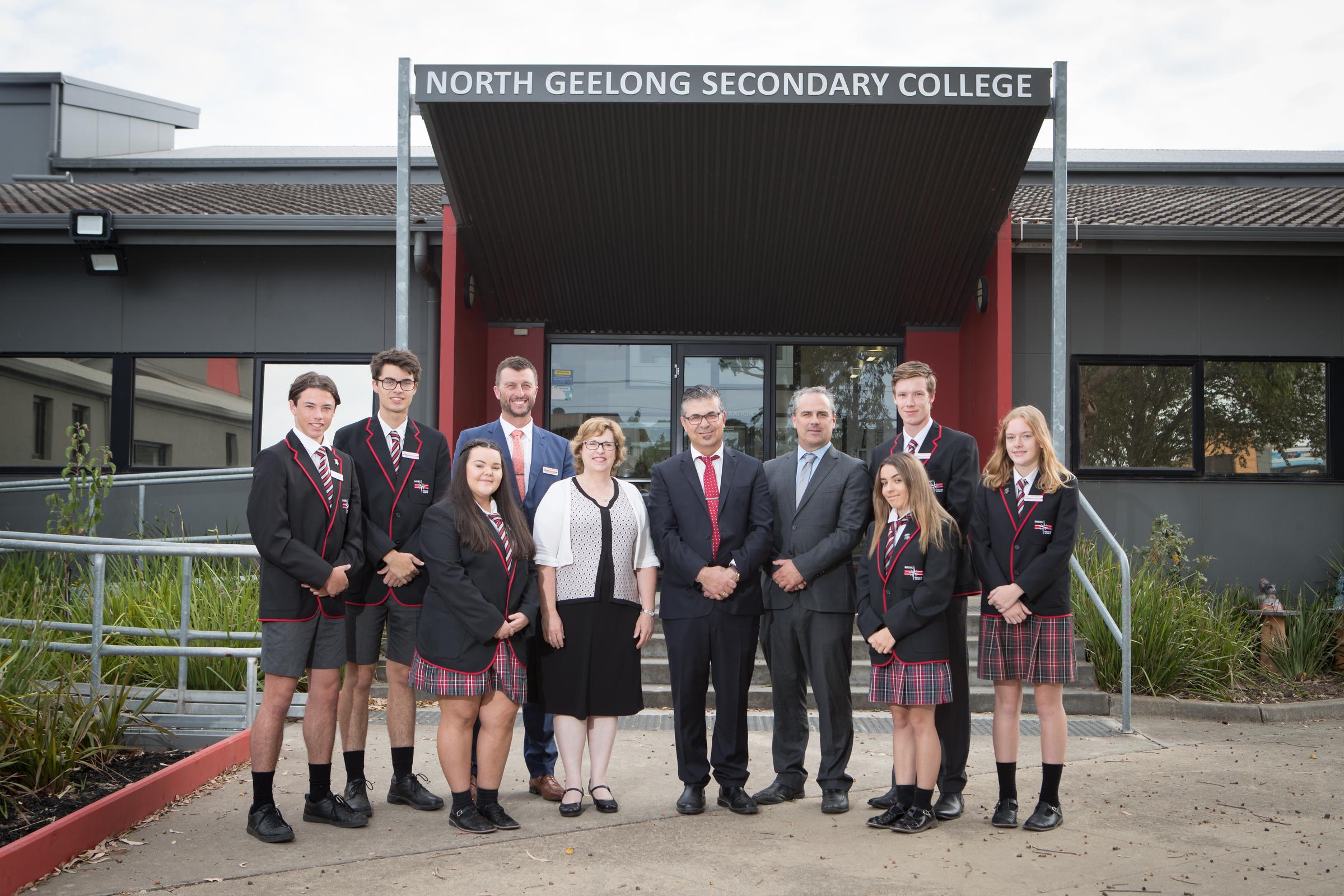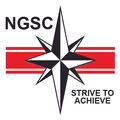
ASSISTANT PRINCIPALS’ REPORT
Mrs Julie Andrews, Mr Paul Dawson &
Mr Bradley Headlam
Assistant Principals
The majority of Year 11 students have completed their subject selections for 2020. This was undertaken on Wednesday and required the majority of the VCE students to drop a subject to cater for their study periods in 2020. The VCAL students picked a new VCE/VCAL subject and many of the students have continued with their current VET or have picked a new VET.
Year 9 and 10 Parents are reminded about the following important subject selection dates that are coming up this term. It is vitally important that all parents are involved in this process and assist their children in making these choices. Making the correct subject choices now will go a long way in ensuring a smoother transition into the following year level. Parents are able to provide informed advice on choices that will suit their children’s needs and interests.
Thursday, 1 August to Friday, 2 August
Year 10 - 11 Subject Counselling
All parents to attend with their child. Year 10 students are not expected at school on the Friday. Accelerated subject forms also due.
Friday, 9 August
Year 9 - 10 Subject Counselling
All parents to attend with their child. Year 9 students will not have any classes.
MIDDLE SCHOOL PARENTS
KEEP THE CONVERSATION GOING…
A quick look at the school calendar and you could be quite overwhelmed at the number of events, particularly in the Middle or Senior Schools. Camps and excursions aplenty! It is, however, a fantastic time for parents to engage with their children in relation to their performance at school, effort, application and achievement. Parent Teacher Conferences are on Monday, 29 July, and this provides parents with great insight into where their children are up to with their learning. It is important to consider what more you would like to know and how you and the family can support, motivate and inspire learning in the home. Discussions around homework are to be considered and this can be unpacked further in the occasional situation of there being no homework provided. These discussions are very important as it might also highlight that there is a need for a quiet work space and really engaging in these conversations with teachers and your children will help put some of these measures in place. Potentially it could lead to a conversation about Social media management, gaming, TV or phone use in the home. We have many of these kinds of conversations, as do staff and it might prompt a compromise where hours of homework equals hours online, for example.
The discussions with teachers should paint a picture of where you child is at the moment and then start to shape in your mind where they are realistically heading. This takes us to Course Counselling; while this is taking shape your child will be participating in a range of careers information opportunities. It will be during these activities that a vision for the future will start to be identified, the careers team will provide information on how to get there and what needs to be done now and later. Here is another great opportunity to continue the conversation with your children and be alongside their journey to their preferred pathway. Chats at this point might highlight that you have a colleague or relative that has insights into their particular journey and that might help your child gain more understanding about the job or the journey and hence increase their motivation towards their goal.
By the end of the careers week you will go through a discussion with a course counsellor to identify subjects that take your child towards their preferred goal. Again by continuing the conversation as a parent you might ask about the expectations (work related) in this subject, if your son or daughter can meet these expectations realistically. In some instances it might mean that there is limited capacity to do the appropriate maths for a pathway that requires high level maths. This might be a challenging discussion where you as a parent have to identify some goals to guarantee that your son or daughter can rise to the level required or perhaps alternatives must be considered.
By the end of the week the subjects are entered into a software program and Leadership teams go through the selections and data to identify what subjects are approved for 2020. We aim to provide all that is selected, however, subjects with lower student numbers are not feasible and we have to investigate alternatives, therefore your child may need to be counselled again to find the best fit.
In some instances, your child may not be working to the best of their ability, we all know that if they are absent, not applying themselves, or disinterested then it is likely that being successful in the senior program is going to get harder. We take this very seriously and in some cases students who are not meeting basic requirements will not be able to make subject selections until there is an improvement in basic work habits. During this time, parents/carers, together with the student, will have meetings with Student Management and Careers to plan classroom goals, immediate alternatives and future pathways in an attempt to inspire and motivate them. It has to start with the student/child identifying what motivates them. Through goal setting and visualising a pathway they can start to become more motivated towards success. It is hoped that we will achieve this through this busy period with the support of you, the parent/carer. So thank you and good luck!
Keeping Track of Your Child
Just a reminder about avenues in which you can keep an eye of your child’s progress.
- Learning Tasks are available on Compass and should provide results and feedback on performance (generally 4 times per subject per semester)
- Progress Reports come out every 4 weeks and provide an insight into the basic work habits of your children and are available on Compass
- Parent Teacher conferences - discussions with teachers
- Email teachers to gain more detail as required
- Call teachers to discuss assessment or gain more input into how you can support your child’s learning
Parent Teacher Conferences
Monday, 29 July 12 – 7 pm
The semester two Parent Teacher Conferences will be conducted on Monday, 29 July, between 12:00 noon and 7:00 pm. Online bookings for PTC are open on Compass. If you find that there is no appropriate time to meet with the teacher, please contact them via email or phone call to set another time to discuss your child’s progress.
Please use the recent Progress report and Semester One academic report to guide your discussion with teachers.
Note: only Unit 4 VCE subjects and VET (Beauty and Sport and Recreation) will run on Monday at the normal bell times. All other external VET programs will run. As a result, some VCE teachers will not be available for conferences until after the scheduled meal break (3:30 pm).
WHY WE SHOULD NOT BE LATE!
Below are a number of reasons why it is important not to be late to school.
Organisational Benefits
Students arriving to school with time to spare have the luxury of settling in, preparing their class materials and focusing their minds on the lessons to come. They have all the time they need to literally and figuratively wake up. Students showing up to class in the middle of a lesson miss out on this natural transition period This ultimately contributes to the lower grades as a consequence of missing time in the classroom. There are actual studies that show if you are not in class you do not learn.
Never Miss Important Information
Arriving to school after classes have begun can cause students to miss more than just the introduction to a new lesson. Students who show up late may miss out on these details and as a result, will be unprepared for some future class event. While a teacher will likely reiterate crucial information throughout the day, latecomers may miss out on courtesy reminders about homework assignments and other projects. High school students who show up on time everyday can rest assured they have all the necessary information.
Develop Positive Lifelong Habits
Arriving late to school on a consistent basis can have longer-term academic effects. If showing up late to school becomes a habit, students may develop the notion that tardiness is acceptable behaviour. This belief can negatively impact their future work ethic and employment opportunities. Alternatively, showing up on time to school every day can help students develop the habit of being punctual with important commitments. This habit can serve high school students well through University and into their future careers.
Disciplinary Consequences
North Geelong Secondary College has specific consequences concerning student lateness. Generally, these policies allow for the occasional late arrival; rare instances of excused tardiness throughout the school year are often forgiven. Students sometimes have legitimate reasons for showing up late, such as transportation problems and doctor’s appointments. These events are considered to be "excused absences." However, after reaching a predetermined number of unexcused absences, students may be put on a structured disciplinary plan to address any further late arrivals. Depending on their continued infractions, students may be issued lunchtime or after-school detention, or even suspension.
Year 10 Immunisation Program (Meningococcal)
Any student who missed the immunisation program this week can attend a Barwon Health centre – see the timetable attached to the Community news section of this newsletter.
Changes to Centrelink Abstudy and Youth Allowance
Information about these changes are in the attached document in the Community News section of this newsletter.


